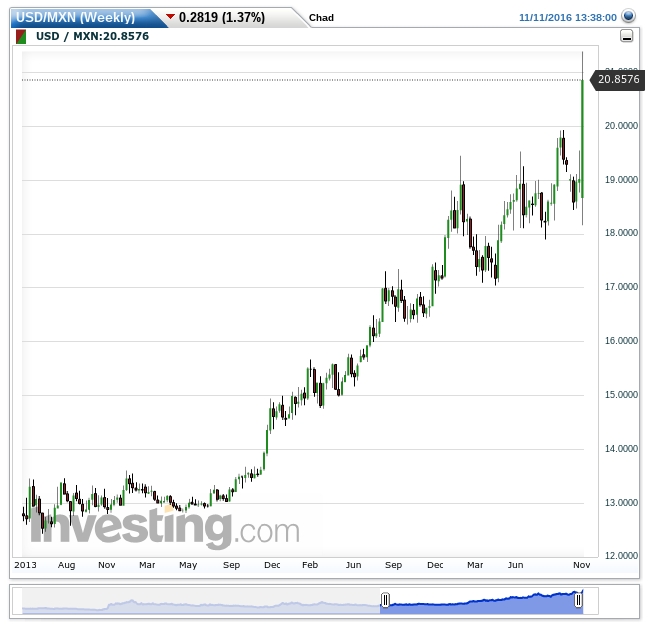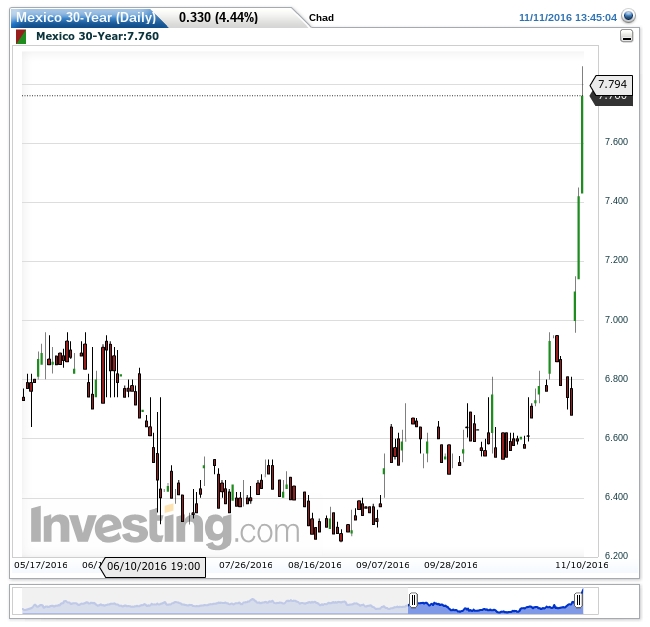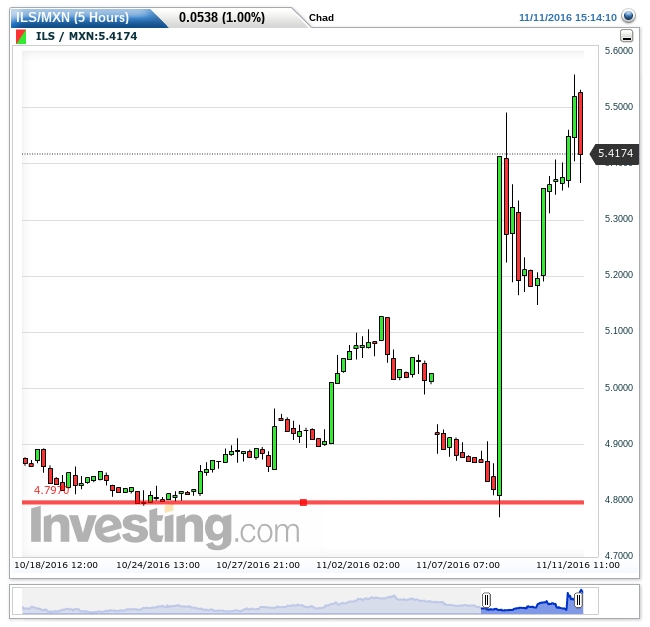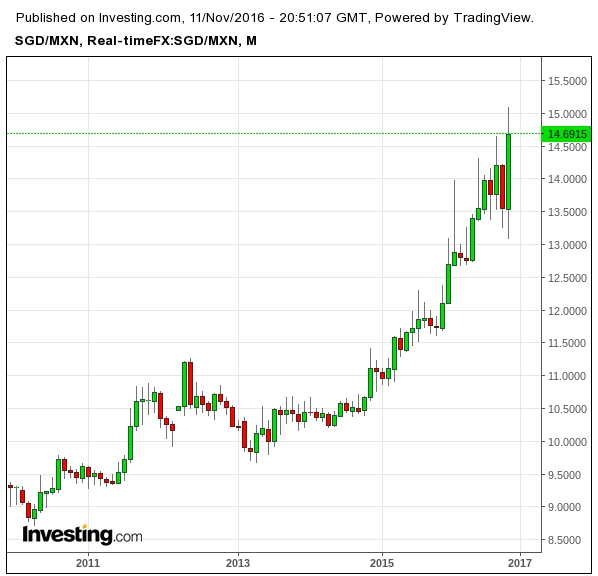While USD closed up its best week in a year the Mexican peso has taken a continued beating. Investors are worried if and how Trump policies could effect exports from Mexico, the No. 2 economy in Latin America, driving the peso lower and creating expensive money for Mexico. In addition to a basket of social and immigration issues semmingly up for grabs.
Mwanwhile, when the peso hit an all time low, Mexico's 30-Year bond had a major yield spike. So far, credit ratings have not been effected, but it is too early to tell. Mexico's credit rating was moved to negative in March of this year by Moodys, moving down from stable. Moody's did not mention the US election as a risk but stated:
Subdued economic performance and continued external headwinds will challenge the government's fiscal consolidation efforts and increase the risk that rising debt ratios will not stabilize over the rating horizon.
Meanwhile, the peso slid against the Israeli Shekel (ILS/MXN) and the Singapore dollar. While both pairs are a tad exotic, it is significant and fully represenative of the global slide of the Mexican Peso.
Mexican Peso margin requirments in Canada have increased, brought on by the loss in value and more risk. The IIROC (Investment Industry Regulatory Organization of Canada) released a statement today after the currency continued a negative streak incuding a 12% drop against the dollar over the past 48 hours.
Much of the concern is from uncertainty. If Trump dismantles NAFTA the peso will stay supressed. However, this is too early for analysis and is pure speculation at this point. NAFTA could be renegotiated but many of the current business is locked in with public companies and North America's precious (but flawed) GDP measurements.
T.P.P. - or a T.P.P. subset group - could continue without the U.S and Mexico could join trade talks with other sovereigns so as to avoid negative speculation and continued pressure on their economy. Trump is against the T.P.P agreement and Mexico stands to benefit heavily from the 12-country deal which icludes the United States, Singapore, Australia, Brunei Darussalam, Canada, Chile, Japan, Malaysia, Mexico, New Zealand, Peru, and Vietnam.
The agricultural industry wants T.P.P. but Trump and his GOP cohorts are against it. It will not happen during the lame duck session, meaning it will not be brought up this year. It is no secret that Mexico was counting on the continued success of NAFTA and the development and deployment of the T.P.P. deal, these outlooks will sideline immediate GDP growth and continue uncertainty with investors and their ultimate confidence in the Mexican economy.




